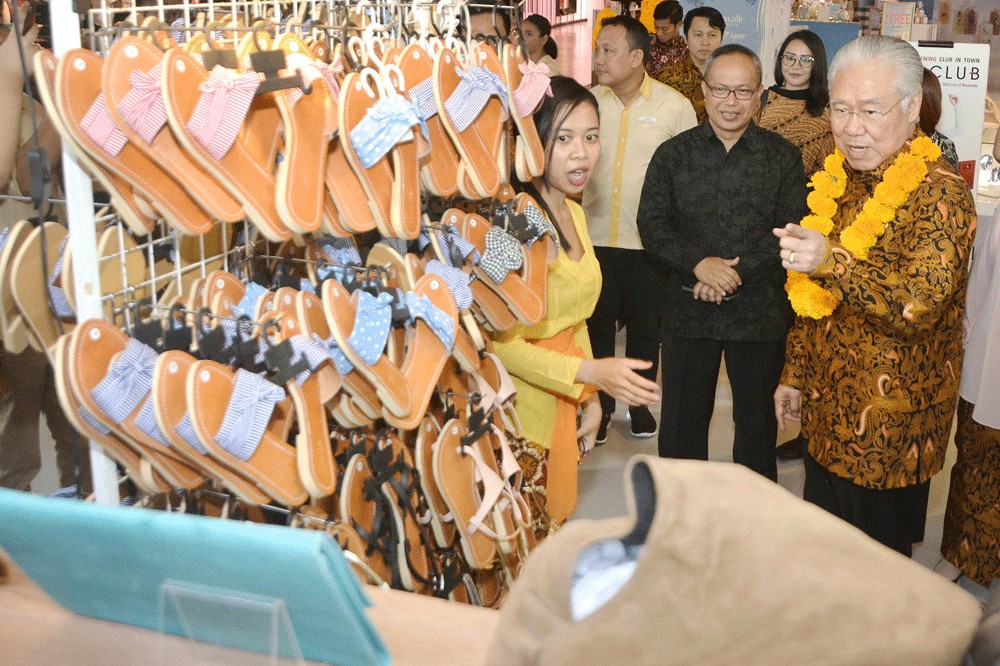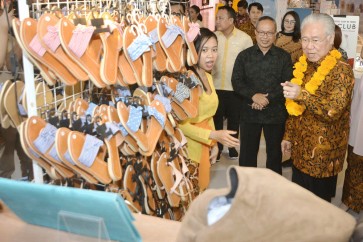Popular Reads
Top Results
Can't find what you're looking for?
View all search resultsPopular Reads
Top Results
Can't find what you're looking for?
View all search resultsGovernment looks to jack up growth as exports shrink
The government eyed annual non-oil and gas export growth of 8 percent in 2019 with a focus on developing six sectors, namely furniture and wood products, food and beverage, textiles, electronics, basic chemicals and the automotive sector.
Change text size
Gift Premium Articles
to Anyone
T
he government is hoping to net more traders to jack up growth as year-on-year (yoy) exports contracted for the 11th consecutive month in September, with the largest declines occurring in resources and manufacturing, posing a danger to economic growth and jobs.
President Joko “Jokowi” Widodo’s administration has struggled to boost exports in a bid to jack up the country’s sluggish economic growth amid lower commodity prices and heightening trade tensions that have disrupted global demand. Various efforts are being made to boost exports, from encouraging local businesses to produce more competitive products to holding an international trade forum to secure more shipments abroad.
Indonesia’s gross domestic product (GDP) expanded at its slowest pace in two years at 5.05 percent in the second quarter as international trade cooled down while investments and domestic household spending softened.
"We are opening exports to nontraditional markets and also getting active in holding trade missions and business matching," Trade Minister Enggartiasto Lukita said during the opening of the country’s biggest trade event, Trade Expo Indonesia 2019, in Tangerang, Banten, on Wednesday. The Trade Ministry’s work would not stop at promoting local businesses, as it would also help them in trade transactions and investments, he added.
The expo, which runs until Oct. 20, is showcasing 1,497 local businesses ranging from those in manufacturing and strategic industries to handicraft and innovative product makers. A total of 6,025 buyers from 120 countries registered to attend the event, which expects to book 15 percent growth in transactions from last year’s US$8.49 billion.
The government eyed annual non-oil and gas export growth of 8 percent in 2019 with a focus on developing six sectors, namely furniture and wood products, food and beverage, textiles, electronics, basic chemicals and the automotive sector, Enggartiasto said.
The country’s exports dropped 5.74 percent yoy in September to $14.1 billion, marking 11 consecutive months of yoy declines, Statistics Indonesia (PBS) data shows. Imports, meanwhile, were down 2.41 percent yoy in September at $14.2 billion, resulting in a trade deficit of $160 million.


















